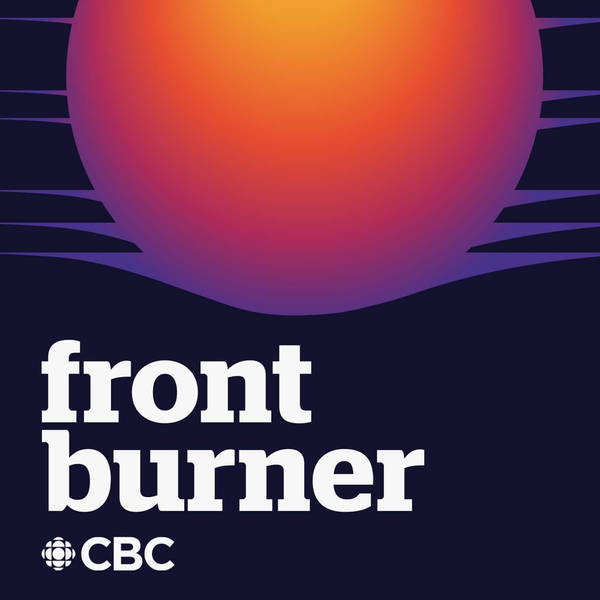
Front Burner
Front Burner is a daily news podcast that takes you deep into the stories shaping Canada and the world. Each morning, from Monday to Friday, host Jayme Poisson talks with the smartest people covering the biggest stories to help you understand what’s going on. We’re Canada’s number one news podcast and a trusted source of Canadian news.
We cover Canadian news and Canadian politics, Pierre Poilievre, Mark Carney, the Donald Trump administration, the upcoming 2025 Canadian election, provincial politics from Alberta, British Columbia, Ontario, and politicians Danielle Smith, David Eby and Doug Ford. We cover Toronto, Vancouver, and Calgary as well as other municipalities across Canada.
In this Canadian election year, Front Burner will be focusing more on Canadian politics. We will take a close look at Mark Carney’s first few weeks as Prime Minister-Designate, the Conservatives and Opposition Leader Pierre Poilievre as well as other leaders like Jagmeet Singh from the NDP and Quebec’s Yves-François Blanchet from the Bloc Québécois during the 2025 Canadian federal election. The podcast goes beyond Ottawa and digs deeper into major election issues like U.S.-Canada relations, jobs, the economy, immigration, cost of living, housing and rental costs, taxes and tariffs, democracy and technology.
The Front Burner daily podcast covers Canadian news from every province and territory: Alberta, British Columbia, Saskatchewan, Ontario, Quebec, Manitoba, Nova Scotia, Newfoundland and Labrador, New Brunswick, Prince Edward Island, Nunavut, Northwest Territories and Yukon. We cover news from major cities like Ottawa, Toronto, Vancouver, Calgary and Edmonton.
When U.S. President Donald Trump declares he wants to make Canada the 51st state, and decides to implement tariffs, Front Burner has an analysis into what is happening. We cover Elon Musk’s DOGE. We cover the latest in technology from the rise of bitcoin and crypto, the future of TikTok, Meta, artificial intelligence, influencers, and more.
Look to our archives to see fact-checked stories about infrastructure, fascism, border security, immigration, Pierre Poilievre, Justin Trudeau, the Republican Party, American politics, Canadian politics, India, China, Trump’s tariffs, Mark Carney, Elon Musk, Toronto, technology, artificial intelligence, international students, healthcare, and inflation. We cover global news like the Israel-Hamas war in Gaza, the ceasefire, the Ukraine-Russia war, and the U.S. economy and U.S. politics.
Front Burner is a part of your morning news routine. Whether you’re in Toronto or Vancouver or Washington, this is the news that matters to Canadians. We take a look at the economy and break it down from the budget to interest rate hikes to inflation to recessions to jobs to the cost of living. We look at the policy around housing, Canadian housing supply, and what this means for first-time home buyers, renters, and those with a mortgage. We look at technology, from AI to the manosphere to social media like Meta, Twitter, Facebook, and more. We look at influential newsmakers like Elon Musk and influential technology industries like crypto and AI.
Episodes
